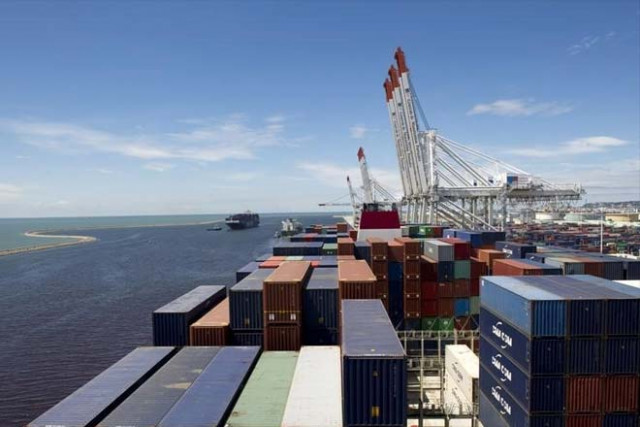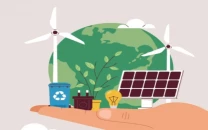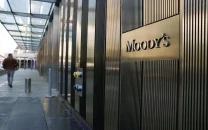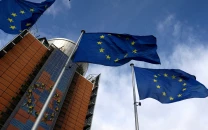PTEA demands measures to boost exports
Says there is need to diversify products and destinations

Representational image. PHOTO: REUTERS
Hailing the sharp fall in the trade deficit, PTEA Chairman Sohail Pasha pointed out that this decline in the deficit is mainly contributed by the import side and not from exports, as growth in exports remained weak.
Quoting official figures, he said that exports have fallen by 0.67% in November over the preceding month while the average rise in exports in the first five months is less than 5%, indicating that achieving the export target will again be the toughest this year.
For the first time in the last 15 years, imports are decreasing but low export volumes are still the issue for the country's economic growth. "Lack of diversification of export destinations and products and the high cost of doing business are among key factors for low exports," he added.
FTO to help clear sales tax refunds of exporters
The chairman said that despite the extreme crisis, the textile industry remained the most export-oriented sector of the economy in the last decade with its 60% share in the country's export revenues. However, stagnating textiles exports have been a consistent source of concern for the economy, he added.
Challenges like stuck-up liquidity, high-priced energy inputs and the imposition of duties and taxes on inputs/raw materials are adversely impacting production, employment and exports.
Although the government has taken exemplary drives to address the issue of outstanding refunds by the liquidation of sales tax refund claims, huge amounts are stuck in income tax, customs duty drawback and textile policy incentive regime. Appreciating the launch of a faster module for expeditious payment of sales tax refunds to exporters, Pasha stressed for immediate simplification of Annexure H.
He said that in order to promote investment in export-oriented sectors and turn Pakistan into an export-led economy, the State Bank of Pakistan had announced to enhance financing limits for exporters under subsidised loan schemes including Export Finance Scheme (EFS) and Long Term Finance Facility (LTFF), however, the same has not yet been implemented.
Exports to China can grow 20 times: Dawood
Similarly, in order to cut down the production cost of export goods, a special tariff for energy supply to zero-rated industries was allowed in October 2018, which has been discontinued since June 2019 and exporters are being charged on normal tariffs.
The new notification has not yet been issued despite approval by the prime minister and due to this exporters are compelled to get relief from the courts every month.
He demanded immediate liquidation of refunds, implementation of the energy package in true spirit and an increase in financing limits for exporters under subsidised loan schemes to accelerate export growth.
Published in The Express Tribune, December 28th, 2019.
Like Business on Facebook, follow @TribuneBiz on Twitter to stay informed and join in the conversation.


















COMMENTS
Comments are moderated and generally will be posted if they are on-topic and not abusive.
For more information, please see our Comments FAQ